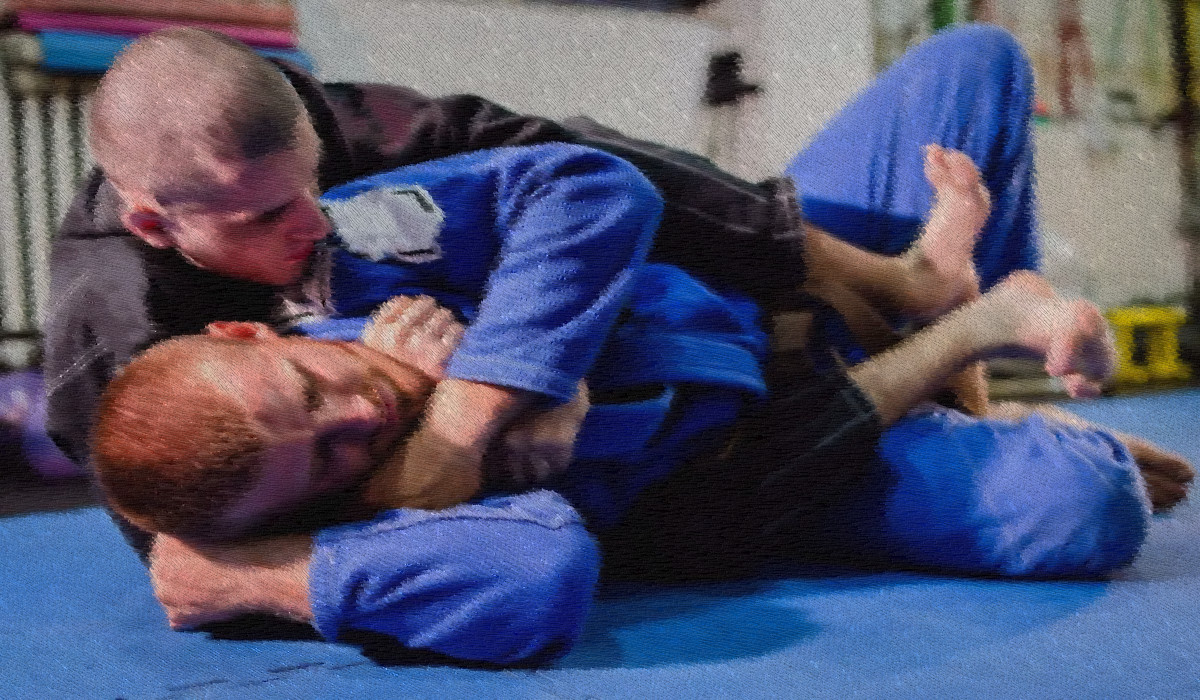
Chokeholds frecuently pop up as a cause of death while arresting a person. This has lead to a ban of chokeholds for law enforcement in many parts of the US. On the other hand, chokeholds are considered one of the safest submissions for both training partners. Strange, isn't it?
First published: 20/05/2023 | Last update: 21/05/2023
Both in training sessions and in tournaments loss of consciousness due to chokeholds every once in a while occur, but there is not a single reported case of death by chokehold during sparring or competition neither in Judo nor in BJJ and not even in MMA! There is an interesting article by E. Karl Koiwai on judoinfo with a list of fatalities caused by chokehold techniques during law enforcement. The details given for each case show, that there is much more envolved than just a choke.
Drugs and alcohol
There are many reports of people that continued to fight with fractured knuckles and even broken limbs because the cocktail of drugs, alcohol, adrenaline and psychological stress factors raised the pain threshold up to almost non-existent. While the feeling of pain is crucial for the safe application of pins, armbars, shoulder locks and other submissions that work on joints and bones, so called blood chokes should not be affected by an altered sense of pain.
However, being on drugs or alcohol will have a severe impact on metabolism and the cardiovascular system. A study of the basque institute of legal medicine comes to the conclusion that almost 50% of cardiovascular fatalities in younger people are due to the consumption of drugs. Now just imagine what happens if you put a person on drugs under the type of stress caused by a chokehold.
In fact, every once and again there are reports of cases of people who die while being held down by law enforcement officers without applying any chokeholds. Of course headlines such as "Poor young bloke dies while fixed on the ground by 6 policemen" sell well" but often only tell part of the story.
But hang on, there is more to it. People who train jiu-jitsu spend hundreds of hours to get it right. It takes a long time to get it right. You get back control, work your way up to the neck against a resisting training partner, take care to get the vulnerable wind pipe right into the crook of your elbow to avoid any damage, align biceps and forearm at both sides of the neck and start to apply pressure until you get the tap (surrender). Tapping twice on your partner's body is the sign of "ok, I give" up. The thing is that chokes, properly applied, do not hurt and stubborn whitebelts will just not tap so they end up unconscious. In BJJ you are trained to closely observe what happens while you apply a choke and as soon as you see this happen you release the grip. It happened to me and to my training partners.
If you want to know how it feels when a police officer does that to you, just sparr with a white belt with three months of training, which is what police officers have - at most! They go nuts on you, you need to watch your nose, your lips and they do not give a sh*t about your wind pipe. They just see the opportunity to choke a higher belt. What a trophy! They are sometimes not even aware that you let them get to the position so they can train on you. They just go crazy, no control, no mercy. For higher belts this usually is not a big deal and yes, you sometimes come home with a swollen lip and funny colors on your face but usually a higher belt knows how to deal with choke attacks. It is very uncommon that a beginner chokes a veteran jujiteiro.
But now imagine a guy who does not know anything about grappling sports suddenly gets choked by someone with the amount of training of an absolute BJJ beginner. Not good!
The conclusion of this is: It is not a good idea to globally ban chokeholds as a means of controlling a person on the ground for law enforcement. But this should be limited to officers that train and have achieved a certain level such as a brown belt in Judo or a blue belt (2+ years) in BJJ and only after having received special training. What you need the special training for? It is just not the same choking a training partner under controlled conditions and doing the same thing on a person in the street you know nothing about.